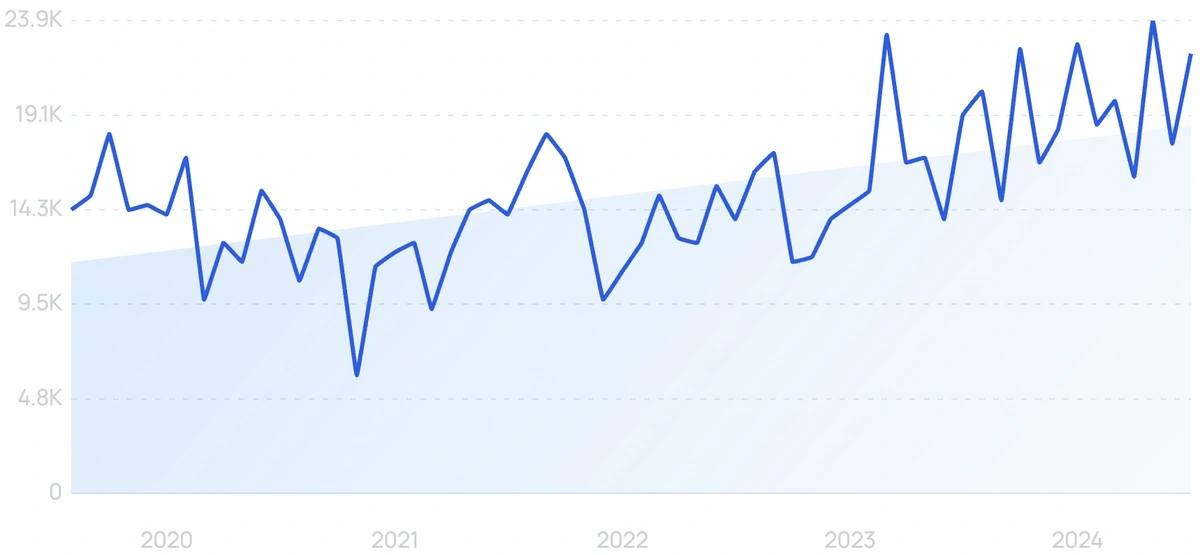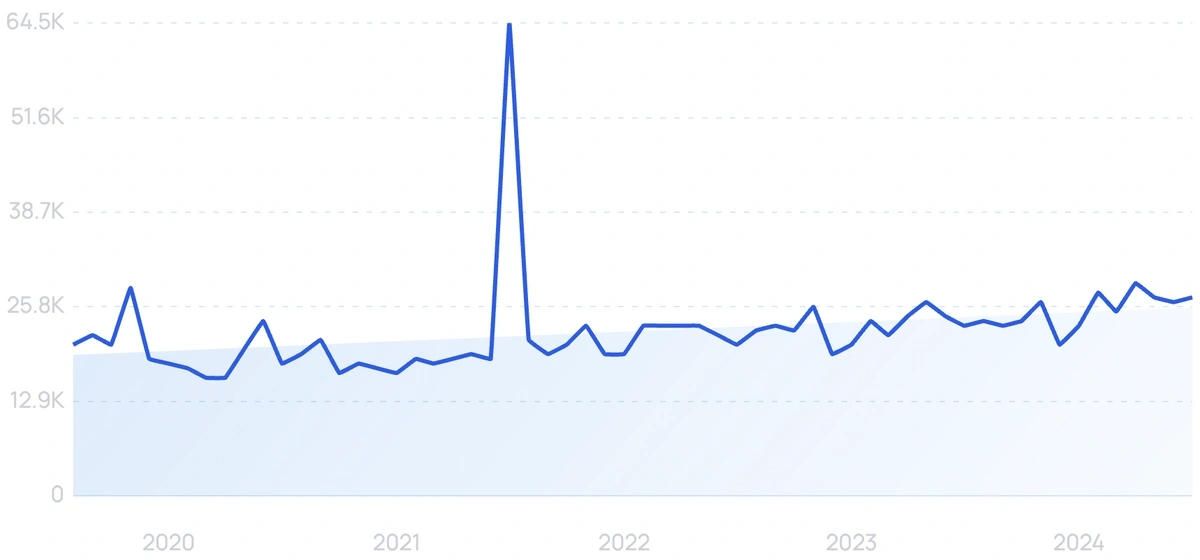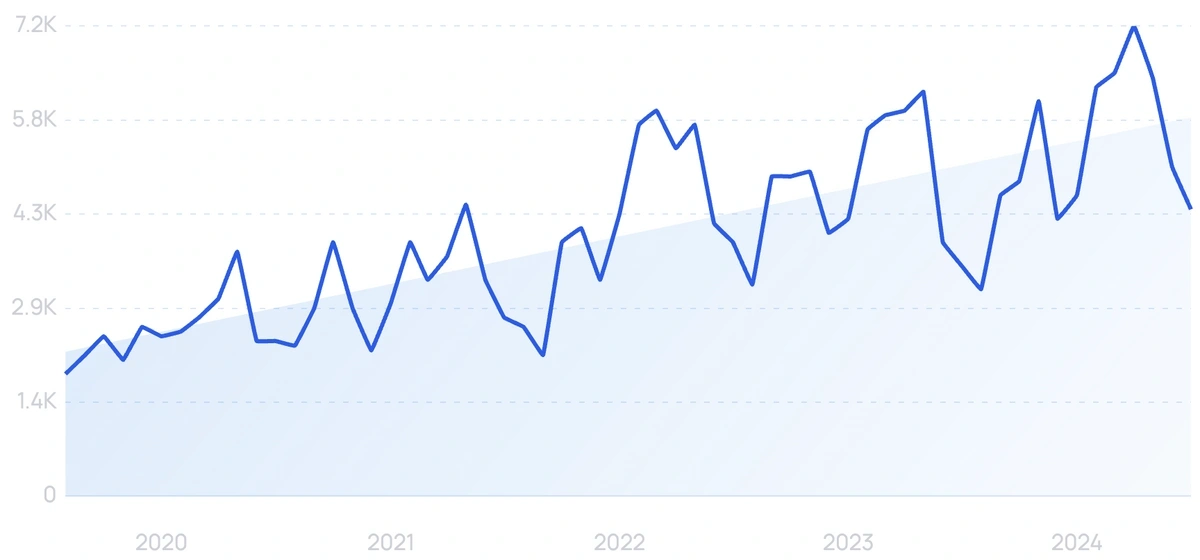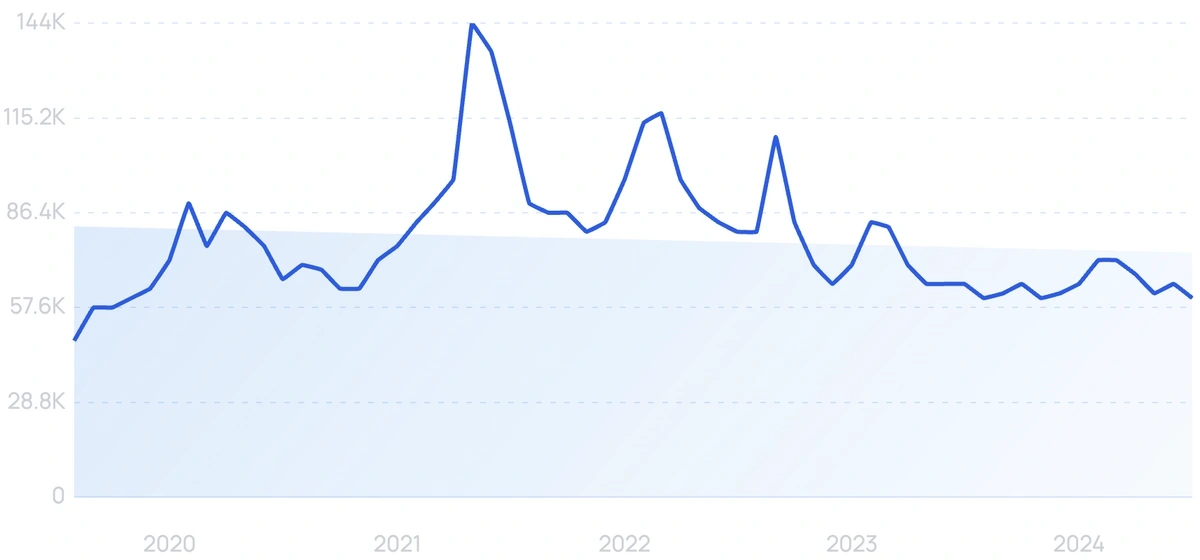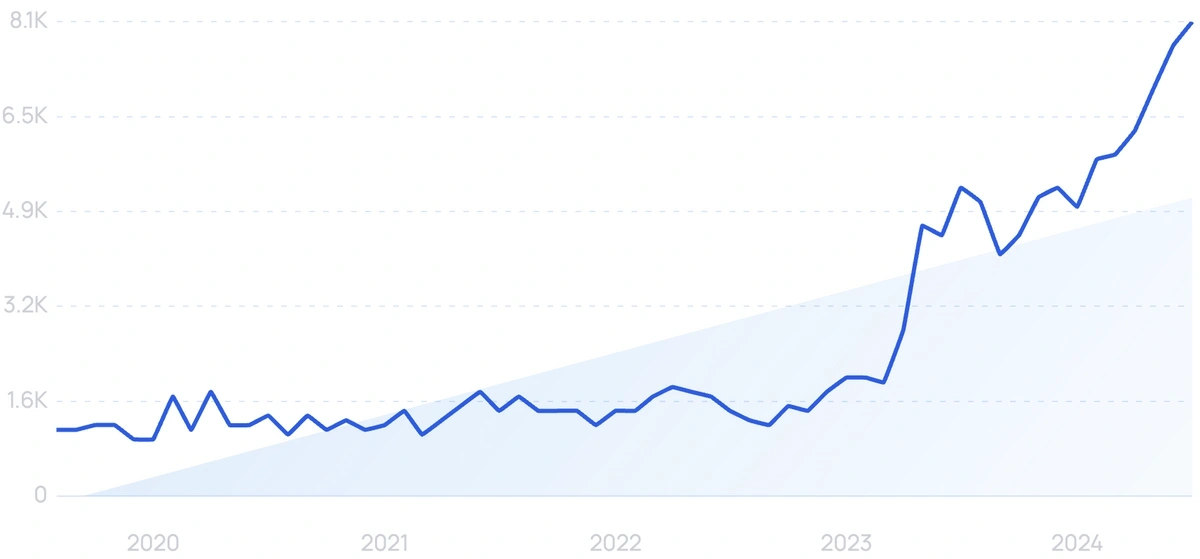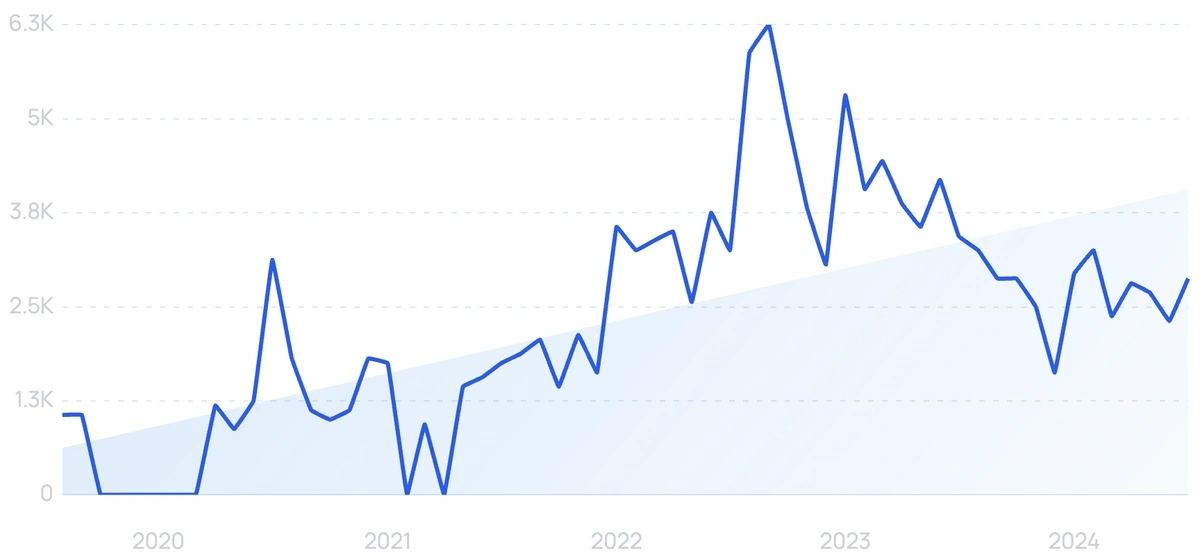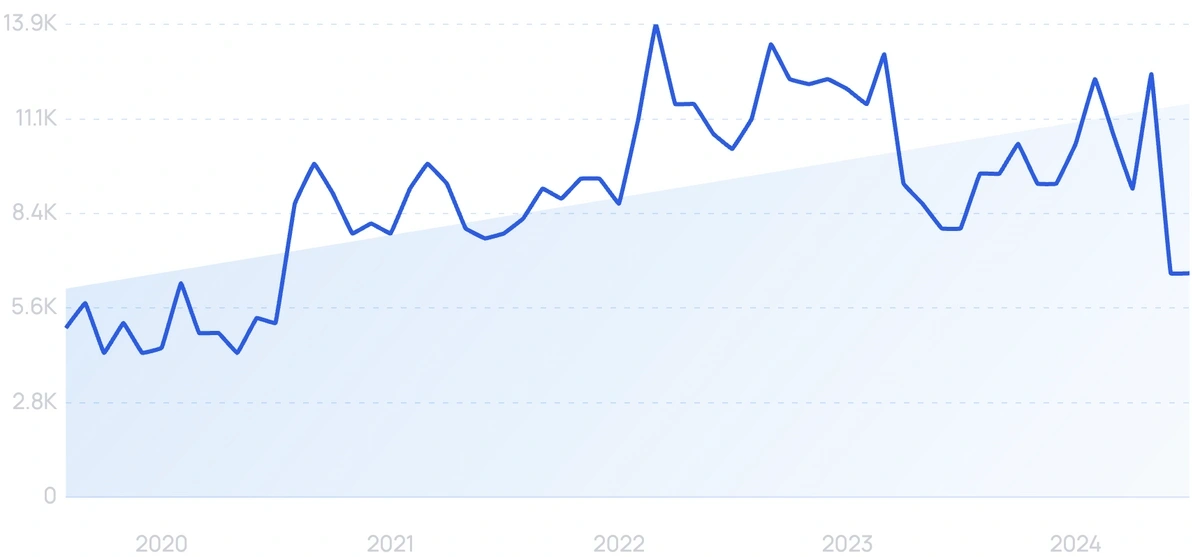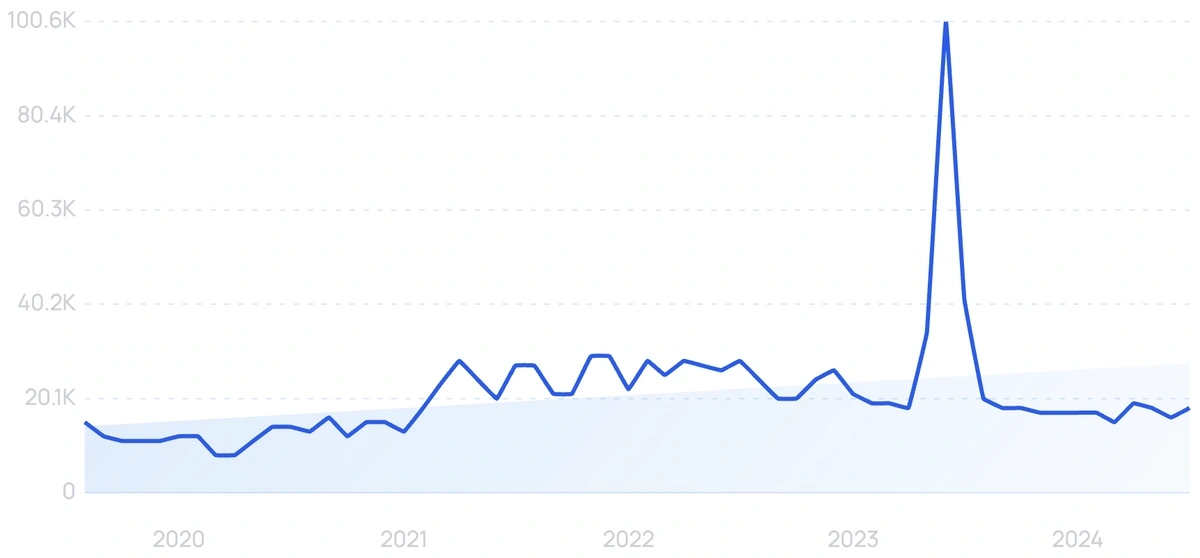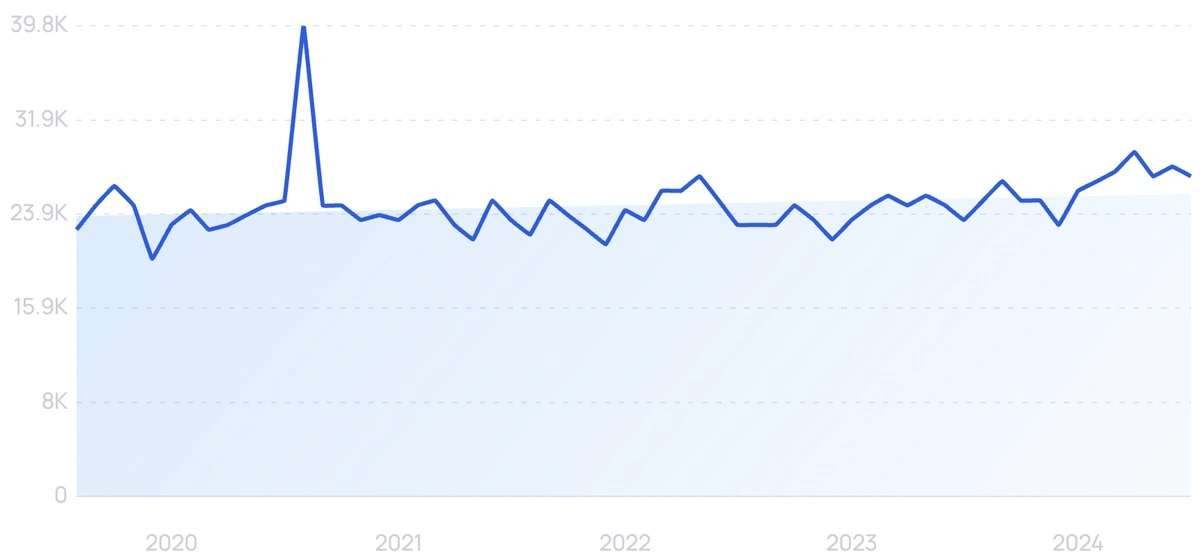Get Advanced Insights on Any Topic
Discover Trends 12+ Months Before Everyone Else
How We Find Trends Before They Take Off
Exploding Topics’ advanced algorithm monitors millions of unstructured data points to spot trends early on.

Keyword Research
Performance Tracking
Competitor Intelligence
Fix Your Site’s SEO Issues in 30 Seconds
Find technical issues blocking search visibility. Get prioritized, actionable fixes in seconds.
Powered by data from
15 Autonomous Vehicle Companies & Startups (2024)
You may also like:
We’ve been hearing about the promise of autonomous vehicles for years. But the industry is finally moving closer and closer to mainstream utility.
The market size reached $158.3B in 2023 and could reach $2.75T by 2033 with some of the world’s brightest minds focused on solving transportation issues that plague almost every country on earth.
McKinsey predicts that by 2030, vehicles that are fully autonomous will be able to operate “anywhere, anytime” with Level 5 technology, the highest standard of technology available.
Read on below for our list of the most innovative autonomous vehicle startups - from robotaxi startups to software companies - creating cutting-edge vehicle technology.
1. Euler Motors
5-year search growth: 5,300%
Search growth status: Regular
Year founded: 2018
Location: New Delhi, India
Funding: $130.4M (Series C)
What they do: Euler Motors is an Indian electric vehicle technology startup that is focused on developing and manufacturing commercial electric vehicles. The company designs, develops, and produces electric powertrains, batteries, and charging infrastructure for its electric vehicles.
Its products include electric three-wheelers and vans designed for logistics and cargo transportation in urban environments. In May 2024, the startup raised an additional $24 million in Series C funding.
2. Wayve
Search growth status: Exploding
Year founded: 2017
Location: London, England
Funding: $1.3B (Series C)
What they do: Wayve is a UK-based autonomous vehicle technology startup that is developing software to enable self-driving cars to operate without relying on expensive and bulky sensors. The company is using deep learning and computer vision techniques to help cars learn to drive themselves using just cameras and GPS data.
Wayve is working to build a scalable self-driving system that can be used across a wide range of vehicle types and environments, with the goal of making autonomous driving accessible and affordable. The startup raised a massive $1.05 billion in Series C funding in May 2024.
3. Waabi
5-year search growth: 900%
Search growth status: Regular
Year founded: 2021
Location: Toronto, Canada
Funding: $282.6M (Series B)
What they do: Waabi is a self-driving technology company that aims to make autonomous vehicles safer and more accessible to everyone. The company's approach is based on combining the strengths of deep learning and probabilistic reasoning to create safe and reliable autonomous vehicles.
Waabi's team includes experts in artificial intelligence, robotics, and automotive engineering, and the company has received funding from leading venture capital firms. In June 2024, in an effort to launch its fully driverless trucks, Waabi raised $200 million in Series B funding.
4. Ghost Autonomy
5-year search growth: 600%
Search growth status: Peaked
Year founded: 2017
Location: Mountain View, California
Funding: $217M (Series E)
What they do: Ghost Autonomy is a self-driving car startup based in the United States. Their focus is on developing autonomous systems that can operate in harsh weather and low-light conditions, which are challenging for existing self-driving technologies.
Ghost Autonomy's technology leverages advanced sensors, computer vision, and machine learning algorithms to enable safer and more efficient autonomous driving.
5. Einride
5-year search growth: 48%
Search growth status: Regular
Year founded: 2016
Location: Stockholm, Sweden
Funding: $652.3M (Debt Financing)
What they do: Best known for its self-driving Einride Pod, Einride is a company completely focused on freight hauling and trucking. With a sleek, minimal website and clean branding, Einride resembles the Tesla of the freight and shipping world. Its early customers include Michelin, Coca-Cola, Svenska, and the Port of Helsingborg.
6. WeRide
5-year search growth: 12%
Search growth status: Exploding
Year founded: 2017
Location: Guangzhou, China
Funding: $1.1B (Corporate Round)
What they do: WeRide is the first company in the world to have driverless test permits for both America and China. During its first year of operation, over 147,000 trips were taken by more than 60,000 passengers in China. Riders can request a WeRide by using the Amap app, one of China’s most popular with over 140 million monthly users.
WeRide has secured funding from some of the world’s most respected auto brands, including the Renault-Nissan-Mitsubishi Alliance.
7. Cortica
5-year search growth: 31%
Search growth status: Regular
Year founded: 2007
Location: Tel Aviv, Israel
Funding: $109.4M (Series D)
What they do: Cortica has an interesting solution to the complex puzzle that is driving in the modern world. Their artificial intelligence mimics the brain of a mammal, enabling vehicles to learn, identify scenarios before they happen, and react to dangerous situations.
Although based in Tel Aviv, Cortica has over 100 employees worldwide with backgrounds in AI research as well as experience in Israel’s elite intelligence units that are world-renowned.
8. May Mobility
5-year search growth: 106%
Search growth status: Regular
Year founded: 2017
Location: Ann Arbor, Michigan
Funding: $302.6M (Series D)
What they do: Cities are May Mobility’s target market, and the company has a portfolio of cities, including Arlington, Ann Arbor, Hiroshima, Japan, Detroit, and Grand Rapids, among its past and current clients. Its sleek branding highlights its eco-friendly ethos and its unmistakable green and white shuttles ferrying passengers back and forth.
May’s product is simply a fleet of autonomous shuttles specifically designed to master complicated city roads. Since its first route in 2019, May has provided over 320,000 public rides around the world. Plus, the startup is fresh off an injection of $105 million in Series D funding to continue developing its autonomous transit services.
9. Nuro
5-year search growth: 28%
Search growth status: Peaked
Year founded: 2016
Location: Mountain View, California
Funding: $2.1B (Series D)
What they do: Nuro achieved press and fanfare when it was announced they had the first deployment permit for autonomous vehicles in California. The funky-looking Nuro is purely a delivery vehicle, with brands like Domino’s Pizza, Chipotle, Kroger, and Walmart using the robotic vessels to make routine deliveries in neighborhoods or offices.
Here’s how it works: Users order delivery from their shop of choice, a Nuro vehicle is then loaded and heads towards the destination (with tracking available via the app), the customer walks out and grabs the order as soon as it arrives.
10. Pony.AI
5-year search growth: 641%
Search growth status: Exploding
Year founded: 2016
Location: Fremont, California
Funding: $1.3B (Series D)
What they do: Like Argo, Pony’s built a full-stack software developer solely focused on autonomous vehicles from cars to trucks. The first to launch their robotaxi service in 2018, Pony has partnered with brands like Lexus, Hyundai, and Lincoln to pilot their unique tech. Different modules range from perception (advanced sensors) to planning and control (prepares for outlier events like a car accident in front of you).
11. Sibros
5-year search growth: 5,200%
Search growth status: Regular
Year founded: 2018
Location: San Jose, California
Funding: $85.5M (Series Unknown)
What they do: Sibros is a California-based startup that provides a cloud-based platform for connected vehicle fleets. Its platform provides unified access and control to the entire software and firmware stack of connected vehicles, enabling automakers to securely manage over-the-air (OTA) updates and collect data from their vehicles.
Sibros' technology supports a range of vehicle types, including electric, autonomous, and shared mobility vehicles, and is designed to streamline fleet operations, reduce maintenance costs, and improve vehicle safety and performance.
12. Hesai Technology
5-year search growth: 195%
Search growth status: Exploding
Year founded: 2014
Location: Shanghai, China
Funding: $603.8M (Series D)
What they do: Founded in 2014, Hesai develops LiDAR technology which measures distances by bouncing laser lights off surrounding objects. By measuring the time it takes light to travel, precise distances can be calculated instantly. Why does this matter? This technology powers autonomous driving vehicles, advanced robotics, and smart city tech.
Hesai has formed a deep partnership with Bosch, one of the world’s most respected auto parts manufacturers.
13. Motional
5-year search growth: 68%
Search growth status: Regular
Year founded: 2020
Location: Boston, Massachusetts
Funding: Undisclosed (Seed)
What they do: Motional behind the world’s first robotaxi pilot program. And, unlike many of the other startups on our list, have decided to focus solely on the robotaxi space as a company moving forward.
To date, Motional has provided over 100,000 self-driving rides with zero at-fault accidents on its record. They also boast a 98% five-star rating, much higher than human-driven ridesharing services, like Lyft or Uber (95% of riders give five stars on those platforms.)
14. Nexar
Search growth status: Peaked
Year founded: 2015
Location: New York, New York
Funding: $149.5M (Series D)
What they do: Nexar’s market-leading dash cams are part of their master plan to build the world’s first “safe driving network”. By linking their cameras with computer components that are already in cars today, Nexar believes they can reduce collisions and make driving safer for everyone. The Nexar app provides a single source of truth for events that take place on the road.
Nexar’s U.S. coverage is now more than 90% of freeways and more than 70 million miles every month across 1,000 cities.
15. Momenta
Search growth status: Regular
Year founded: 2016
Location: Beijing, China
Funding: $1.2B (Series C)
What they do: Every year over 1,200,000 people die in traffic crashes around the world. Momenta’s mission is to save one million lives within ten years through their proprietary “brain” for autonomous vehicles that use machine learning to constantly improve.
Conclusion
As you can see from our list, the amount of innovation happening worldwide in the autonomous space is staggering. From Shanghai to Stockholm to Ann Arbor, Michigan, leaders in engineering, computer science, and logistics are combining to pump out brilliant self-driving products.
Expect to see the industry grow around 60% year after year as regulators and cities get more comfortable with the idea of self-driving vehicles with proven track records.
These startups represent some of the most promising self-driving and software firms in the space. Keep an eye out on the roads around you. You just might see one of the vehicles driving past you sometime soon!
Stop Guessing, Start Growing 🚀
Use real-time topic data to create content that resonates and brings results.
Exploding Topics is owned by Semrush. Our mission is to provide accurate data and expert insights on emerging trends. Unless otherwise noted, this page’s content was written by either an employee or a paid contractor of Semrush Inc.
Share
Newsletter Signup
By clicking “Subscribe” you agree to Semrush Privacy Policy and consent to Semrush using your contact data for newsletter purposes
Written By


Josh is the Co-Founder and CTO of Exploding Topics. Josh has led Exploding Topics product development from the first line of co... Read more









